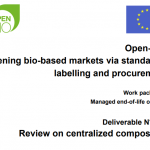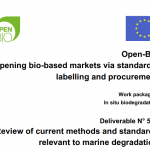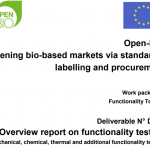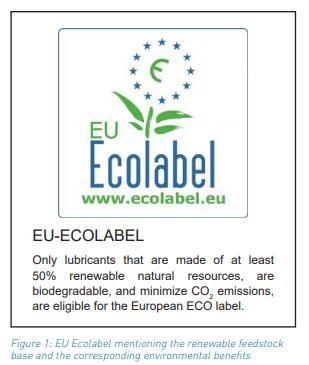Review on decentralized composting
This deliverable contains:
- A review on existing standards on decentralized (home and farm) composting;
- A review on existing practices;
- A definition of the need for further work and developments.
This deliverable aims to give an overview on the state of affairs in this field.
It contains information with regard to the principles and practices of home compost-ing. Besides also available standard specifications, labelling systems and regulations towards home compostable products are discussed in detail. Next , it explains the principles of farm composting and gives an overview of existing practices. Finally, the report gives a general conclusion and some first ideas for the development of a specification for bio-based materials suitable for decentralized (home and farm) composting.





